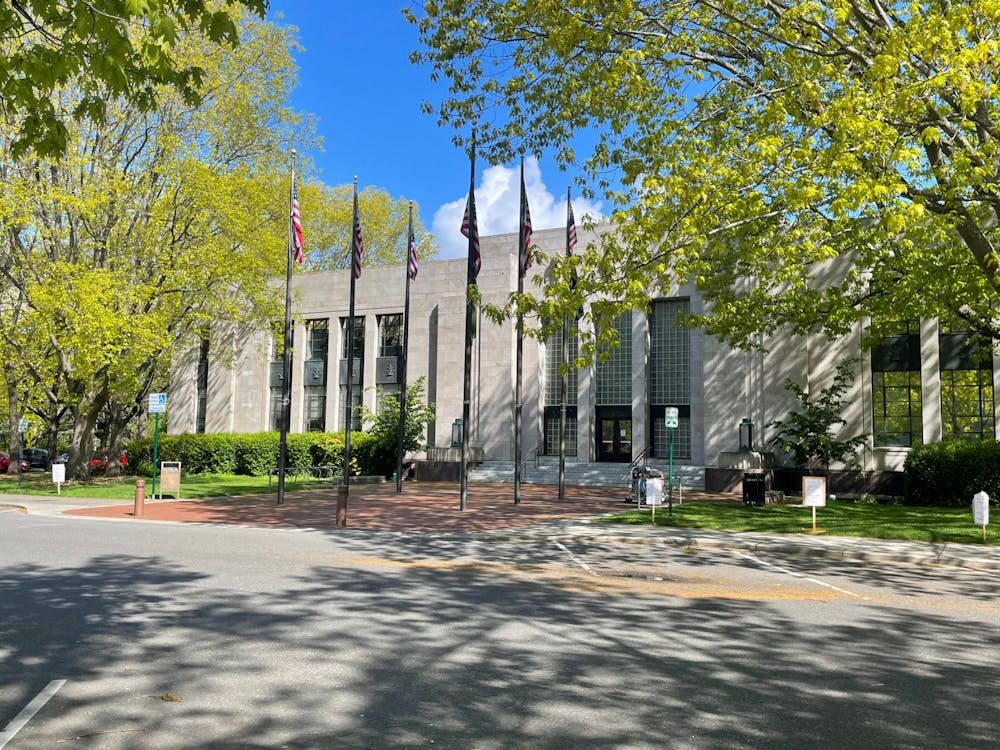Bellingham City Council opened the floor for a special meeting to allow the general public to discuss their worries about public safety on May 16.
This meeting was a part of the city’s special town hall series based on community voices. It was formatted to allow participants to answer one of four questions based on public safety posed by the council.
What causes you to feel safe? What causes you to feel unsafe?
What types of city services help you feel safe?
What is working well in local public safety services?
What are the most important steps our city should take to improve public safety?
The meeting began with a brief review of city crime statistics and then the council opened up the floor to attendees.
Some of the main concerns brought up by speakers revolved around housing insecurity and homelessness, increased crime statistics, a proposal to build a new jail, and the lack of in-person or hybrid city council meetings.
In most cases, concerns were brought up through anecdotal evidence about something they experienced in the city or their neighborhood.
“You kind of take it with a grain of salt,” Councilmember Dan Hammill said. “It's anecdotal, so it's not science and it's not a survey, but it does help to inform to some extent, decisions made when it comes to public safety.”
One attendee of the meeting decided to focus on how he noticed that the perception of crime is much higher than the actual occurrence of crime.
Eddy Ury, a Bellingham resident and graduate of Western Washington University’s sociology program, noted that social media and platforms like Nextdoor amplify the perceptions of crime in a community.
Additionally, he was critical of some concerns that people brought up during the meeting.
“People will point to just walking downtown or just a general perception of there being a threat to them,” Ury said. “What they are actually describing is not danger, its discomfort, and what they really mean is they’re uncomfortable with sharing public space with folks that they just don’t like the look of.”
In Whatcom County, an estimated 742 people are without shelter on any given night.
In Ury’s perspective housing insecurity is easily one of the biggest threats to public safety in Bellingham. He notes that someone below the poverty line is more than twice as likely to be a victim of crime than someone who is not.
“Cities come up with laws that criminalize normal behavior, things like loitering, that are selectively enforced and used as excuses to clear space,” Ury said.
To Ury, public safety in downtown Bellingham means prioritizing those who are most vulnerable, which does not mean policing them more.
Kim Sauter and Brian Estes are the executive director and president, respectively, of the Whatcom County chapter of the National Alliance on Mental Illness. They emphasized the importance of response and treatment of mental illness as critical to public safety.
“Mental health disorders are biological in nature, no one chooses to have a psychotic episode,” Estes said.
Much of what was said concerning homeless people in downtown Bellingham caused Estes and Sauter to take offense. Community members referred to those that make them uncomfortable downtown as “crazy people.”
“When we are talking about people on the streets that are homeless, most of them have undergone so much trauma and we know that trauma affects the brain, so it's a little disconcerting to hear that folks just haven't had the opportunity to be educated,” Sauter said.
In Estes and Sauter’s opinion, the treatment system for mental illness in Whatcom County is flawed and stretched thin.
“There are a lot of problems with the system and in the way we treat people,” Sauter said. “If these folks all had broken arms, it would be a totally different story, they would be treated.”
NAMI believes that treatment and response are the most important aspects of dealing with mental illness which will promote public safety overall.
“Because there are so few treatment beds, especially those that accept patients under involuntary commitment, well that place they do have space is the jail,” Estes said. “So these people end up incarcerated and there is really no reason these people should be in a jail.”
In NAMI’s work, they focus on support for those experiencing mental health challenges, education for the general public to end the stigma and advocating for mental health treatments.
Both Sauter and Estes believe that the city is taking steps in the right direction to address mental illness and public safety concerns.
“The city council shows a great understanding of where the gaps are and they are definitely making tremendous strides to try and fix the gaps in our system,” Sauter said.
However, Sauter and Estes understand that progress can’t be achieved without reform to the city’s system of response and treatment to mental health crises.
Jenelle Baumbach (she/her) is the city news editor for The Front this quarter. She is a senior studying political science and news/editorial journalism. Her past reporting broadly covers local politics, the city council and community interests. In her free time, she enjoys looking at maps and meandering around antique stores. You can reach her at jenellebaumbach.thefront@gmail.com or at citynewseditor.thefront@gmail.com.






